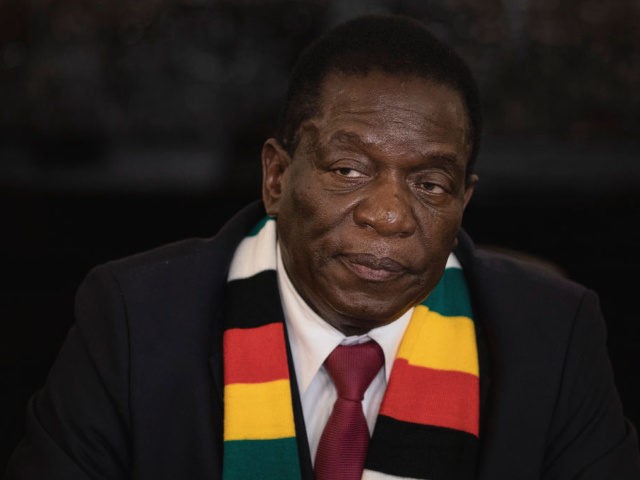Zimbabwe is on the brink of “man-made starvation” under successor President Emmerson Mnangagwa two years after the ousting of late leftist dictator Robert Mugabe, a United Nations report warned Tuesday.
U.N. envoy Hilal Elver visited the southern African country this month to assess the severity of the socialist-controlled country’s food shortages, which have left 7.7 million people in a position of nutritional insecurity.
Describing the statistics as “shocking,” Elver explained that factors such as poverty and high unemployment, rampant corruption, and hyperinflation are all contributing to the severity of the crisis.
“In rural areas, a staggering 5.5 million people are currently facing food insecurity, as poor rains and erratic weather patterns are impacting harvests and livelihoods,” explained Elver. “In urban areas, an estimated 2.2 million people are food-insecure and lack access to minimum public services, including health and safe water.”
Elver concluded that Mnangagwa must reduce Zimbabwe’s dependence on imported goods and develop self-sufficiency in order to counter the devastating effects of the country’s recurring droughts and ongoing economic crisis.
Those most heavily paying the price for the crisis are women and children, with a shocking 90 percent of Zimbabwean children suffering from malnutrition and experiencing stunted growth as a result.
“I saw the ravaging effects of malnutrition on infants deprived of breastfeeding because of their own mothers’ lack of access to adequate food,” she explained. “The situation for women is equally stark, with women (and children) increasingly forced to drop out of school, being forced into early marriage, domestic violence, prostitution, and sexual exploitation.”
Famine and economic decline have been a major issue in Zimbabwe since Robert Mugabe and his far-left ZANU-PF party came to power following the country’s independence from the British Empire in 1980, during which inflation became so high authorities released a 100 trillion dollar note.
Despite his promise of sweeping reform, the country’s predicament has not changed under Mnangagwa’s rule, who has largely continued the far-left and “anti-imperialist” doctrine of his predecessor.
In January, the country faced major civil unrest after Mnangagwa announced a steep rise in fuel prices, with clashes with security forces leading to the death of several civilians. Seven months later, similar protests broke out over mass inflation and general economic malaise, with dozens of injuries after police violently dispersed protesters in central Harare
“I cannot stress enough the urgency of the situation in Zimbabwe,” Elver concluded. “The harrowing stories I heard from resilient grandmothers, mothers or aunts desperately trying to save their children from starvation, in the midst of their daily hardships, will remain with me.”
“Steps could be taken at the national level to respect, protect and fulfill the Government’s human rights obligations, and internationally, by putting an end to all economic sanctions,” she said. “The extraordinarily resilient people of Zimbabwe deserve no less.”
Follow Ben Kew on Facebook, Twitter at @ben_kew, or email him at bkew@breitbart.com.

COMMENTS
Please let us know if you're having issues with commenting.